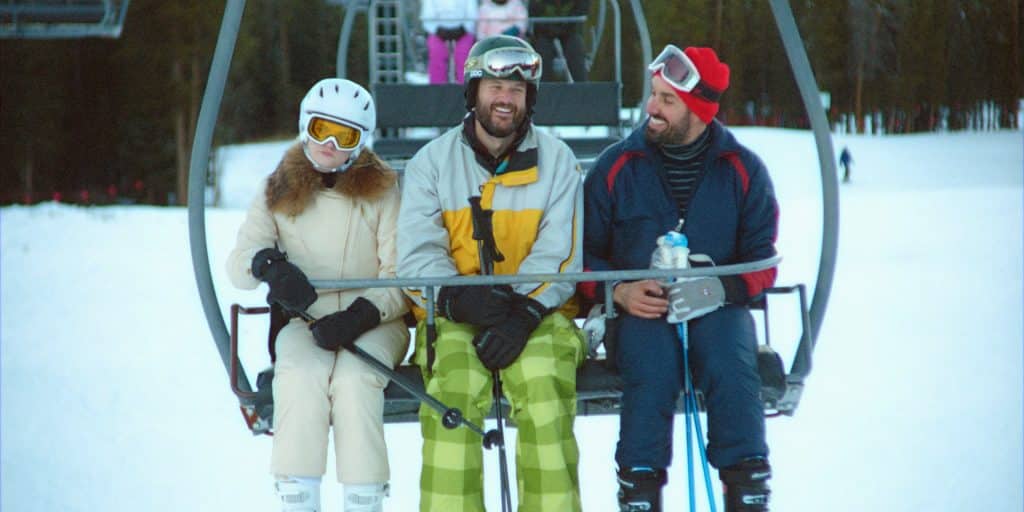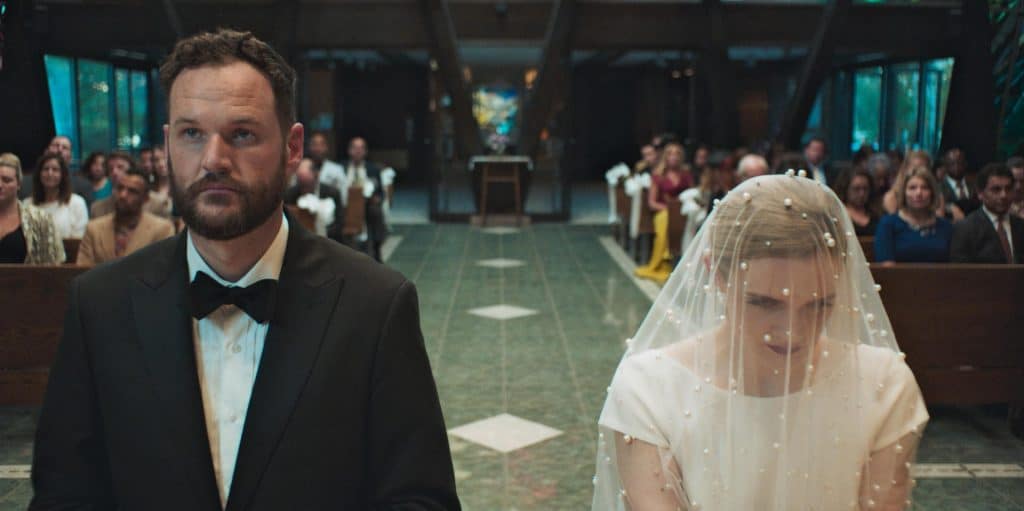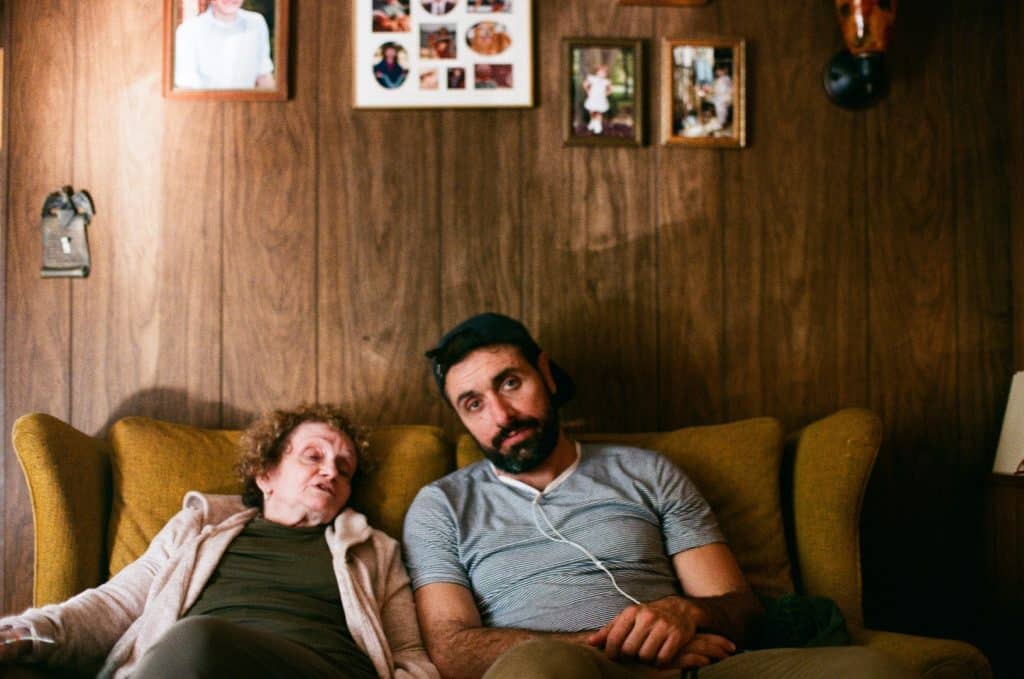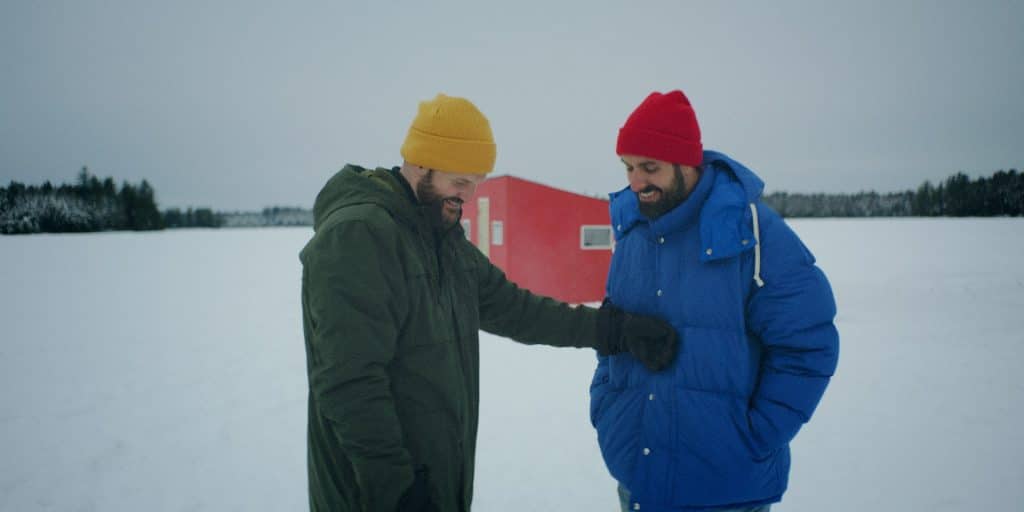Read also:
How to Watch FX Live Without CableHow To Watch AMC Without CableHow to Watch ABC Without CableHow to Watch Paramount Network Without CableMichael Angelo Covino and Kyle Marvin talk about turning their acclaimed short about fractured friendships into an acclaimed feature.
Eight months ago, I attended what might be the last physical press junket I’ll ever be able to attend. In early March, I found myself sitting in the lobby of BFF Bikes, a bike shop in my old Chicago neighborhood of Bucktown, talking to co-writers and co-stars Michael Angelo Covino and Kyle Marvin of The Climb, the indie buddy comedy that proved a Sundance 2020 favorite when I attended. It was only days later that COVID-19 would shut down the country, send theaters reeling, and forever change the landscape of not just the film industry, but the way critics like me would be able to cover them.
Even so, the site-specific junket was a delight, befitting both the avuncular nature of my subjects and the droll humor that undergirds the film we were talking about. The Climb, at its core, is a tale of toxic bromance: far from the sanguine pleasantness of Frat Pack comedies, the two men at the center love each other in ways that tear the other’s life apart.
That’s borne out in the opening scene, the first of several vignettes that structure the film as we follow their interactions over the course of a decade: Mike (Covino, who also directs) is the selfish, manipulative one, choosing a long bike ride to let slip to Kyle (Marvin) that he’s slept with his fiancee — the thinking, of course, is that’s the best way to break the news without actually having to worry about getting his ass kicked. But Covino holds on the two friends as they chase after the other and argue on bikes, a delightfully absurd image that forms the backbone of their dynamic.

From there, we see the ways that the two cross paths, both clearly bad for each other but who carry an affection for one another they can’t escape. Kyle tries to walk the straight and narrow, getting in shape and settling down with his high school girlfriend Marissa (a perfectly wily Gayle Rankin), only for Mike the fuck-up best friend to crash the party in numerous ways.
Covino tracks these vignettes in visually ambitious long-takes, bobbing and weaving through packed family houses and ski resorts and winding European roads, giving the two leads plenty of cinematic rope on which to hang themselves. They, along with Rankin, are grimly hilarious, bouncing off the cycles of selfishness and generosity they all feel for each other, creating a kind of caustic charm to the tale of two shitty dudes who just can’t quit one another.
While The Climb is currently only in theaters (it’s best to wait until it arrives on streaming or until after COVID-19 is under control), it’s well worth a look as soon as it’s safe to do so. Covino and Marvin, two young, exciting indie filmmakers who’ve pulled off a delightful breakout here, deserve the eyeballs. Here, we discuss the long journey to translating their original short to a film, working with each other and with ensembles, and the gratification of seeing your scrappy indie comedy get the attention it deserves.

[The Climb] started life as a short — I’m always fascinated by the process of expanding a short into a feature film. What kind of things did you expand? Where did the scope widen when it came to making it a feature?
MICHAEL ANGEL COVINO: We didn’t want to force making it into a feature — we’ve seen that happen with certain films that didn’t need to be a feature.
So it wasn’t a case of making the short to make the feature?
COVINO: We made the short to make a feature, whether or not it was that one. Meaning, we made the short because we were trying to make features. I didn’t have anything current as a director like that — there are these ingredients you need when you’re producing your first feature that check that boxes that allow a financier to go, “Okay, great, I’ll do that.” One of them is some sort of relevant directing piece that’s shorter than twenty minutes or so.
We’d fallen so far into producing that my shorts were from like, five, six years ago. I’m not going to show that. So we made this for that reason, primarily. And also because it was a showcase of our acting, and our ability to handle comedic timing and dialogue. Then what happened was we got into Sundance, and that opened the door in a different way where we said, “Okay, we actually have to think about if this story specifically should be the thing we continue on.”
So when it came time to expand the script, at what point did you decide on the vignette approach? Was it a case of including the short as just the opening of the film?
COVINO: And not just do an hour and 45 minute bike ride? [Laughs.]
Right, and even just the idea of checking in on these two guys throughout different points in their lives in these creative long-take scenarios?
KYLE MARVIN: Yeah, there was something in that DNA and structure that we really liked. So we decided, if we can do that another eleven times, if we could do a similar concoction of surprise and pressure on these characters, that would make for an interesting way to explore these characters in their relationship.

Speaking of which, that was one of the things that resonated with me, the toxic bromance of it all. I’ve 100% been the Kyle in very long-standing male friendships, where you feel the pressure to be the respectable one. There’s that push and pull between wanting to be a good friend and realizing someone’s bad for you, and the cycles in between. Was that something that resonated in your own friendship?
COVINO: Less between us specifically, and more that these are dynamics of relationships that we understood in varying degrees with different people in our lives. But what we liked about the short that we wanted to explore were these dynamics that we understood very intrinsically. Here’s one person who’s revealing this damaging information, and this other person who’s really upset. But by the end of the six-minute short, he’s accepting it, and you get the sense they’re going to continue to be friends.
So what became really interesting is, that’s the dynamic at its heart — that this person can selfishly reveal this information so that you can get the other person’s acceptance so you can feel okay about yourself. That I’m proposing that it’s for his own good, but it’s really just for me. If my character always thinks of himself, even if he does care deeply about Kyle, and Kyle is this very selfless, giving character who will always accept the pain and move forward, how do we carry this relationship out of the next ten or twelve years? And what hurdles do they have to overcome, realizing they’re never really going to change?
That was the beauty of it: we understood from day one that, no matter what, they might grow incrementally but they’re never going to change the foundation of who they are, or who they are to each other. They’re going to grow in ways that come to be more accepting of the other person’s inability to change.
And even the Gayle Rankin character [Marissa] throwing a wrench in the works, and threatening your relationship with Kyle. What was it like working with her and figuring out the dynamics of these different characters, whether through writing or rehearsal?
COVINO: Gayle is amazing — she elevated the whole thing, and imbued that character with a level of understanding and depth that we imagined, but could never fully articulate. She came in and just said “Yes, I understand why this character is doing these things, and I’m going to own that and bring it to life,” and I trusted her to do that.
We could have taken the foot off the gas a little bit with that character because she plays the antagonist to this love story between these two guys. That can be very alienating and could feel one-note if played the wrong way. But what Gayle brought to the table was this deep understanding of the flaws of her character — ones that would allow her to make some of those irrational decisions that her character makes. Because both the Gayle and Mike characters are cut from the same cloth; in a more traditional sense, it’s the story of two people fighting over the same lover, in a way.

Kyle, what was it like being directed by Michael?
MARVIN: It was awesome — Mike has a really good sense of gauging where to throw away jokes and where the pacing of the emotional stakes and the comedy should play. His barometer on those particular things was really important, to say, “Hey, let’s step further back on this one.” For me, that was really fun, because I could sit in it and perform, knowing the yardsticks of where to push things.
I love the bone-dryness of the humor, like the anti-Graduate moment you guys have at the wedding, with the sisters coming in and reading from Revelations as a dig against Marissa. What was it like fleshing out all these little supporting characters who come in for maybe a vignette or two?
MARVIN: The supporting characters were some of the biggest challenges because everyone has to do a lot of work in such a short amount of time. So for us, it was really like putting the flesh on all the characters and understanding their backstories and their relationships and dynamics and then paring back what they say until we had a core essence of who they were. So when they said those things, or when they go up and read Revelations, you get who that character is, and understand why they’re doing that. And the actors did a really great job of living inside of that thing, living in scenes where they don’t talk for seven minutes before they say their first line.
Of course, the two of you go through tremendous physical transformations over the course of these vignettes. To what extent was that, real things that happen or prosthetics? How long did it take you to film all this?
COVINO: Principal photography was over six and a half weeks, something like that — sure, we waited for winter to get cold enough for the ice to freeze in New York. But the rest of everything that wasn’t on ice was shot in that six and a half weeks. And yeah, Kyle lost a ton of weight while filming and I put on quite a bit of weight.
You didn’t go full Christian Bale?
COVINO: [Laughs.] Yeah, no, but the original idea was to really shoot that whole thing over six months so I could put on an obscene amount of weight. I’m sort of happy we didn’t do it because I don’t know how much it would have helped the film. But we definitely did what we could with the amount of time we had. It was a bit daunting; I think Kyle, at a certain point, was just walking around like a zombie because he hadn’t eaten.
MARVIN: It was pretty intense. I gained fifteen pounds before that first scene, the bike scene, so I could have that. Then I lost thirty pounds while we were filming.
Tell me your secrets! [Laughs.]
MARVIN: Starve yourself and work out a lot. Yeah, no thank you.

And of course, the film premiered at Sundance, where the short itself had such acclaim, and at Cannes, it received the Un Certain Regard award. What’s it like reaching the end of the journey, so to speak?
COVINO: Every turn on this movie has been a surprise. It’s just constant surprises and the uncertainty of what will happen in the future. I think we’ve made enough movies as producers that haven’t had this trajectory. But we know quite well the experience of having high expectations, and not being disappointed with the film itself — because we’re super proud of all our films — but just not understanding why it might not get into a festival, or when it does, something goes awry with the release.
So this film has already exceeded our expectations every step of the way. To prepare the film at Cannes, and then to go up on stage and receive an award, and be in the south of France in the heart of world cinema. It was very surreal and life-changing in terms of our perspective; it really put things in context.
MARVIN: Ultimately, the end of the ride is when it comes out, right? To a very broad public. Because we’ve been going to festivals now for 11 months since it first came out. For me, the big thing that will finally feel like the light of the end of this part of the journey will be when people finally get to watch it.
The Climb is currently cycling through some uncomfortable conversations in select theaters (please exercise responsibility if choosing to attend theaters during the COVID-19 pandemic).